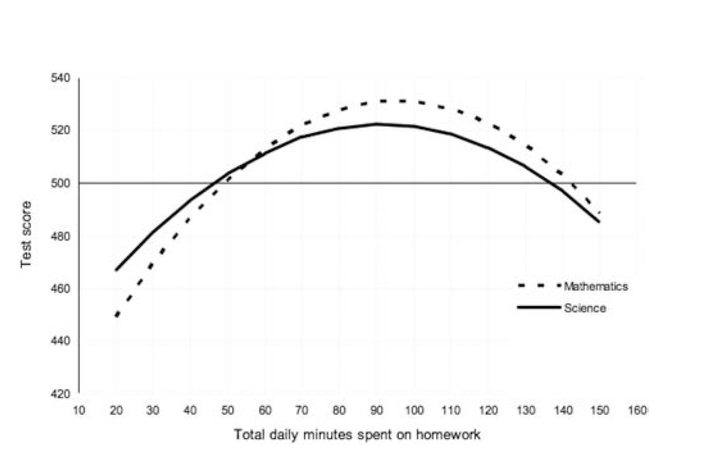
For younger kids, the line between homework and academic success is a blurry one, so the students at one New York City elementary school that recently decided to ditch traditional homework will probably fare just fine. Older kids, on the other hand, are not so lucky: Teenagers do appear to benefit from the after-school routine.
But new research in the Journal of Educational Psychology shows this is only true up to a point. In a study of more than 7,000 teenagers in Spain, researchers at the University of Oviedo found that 70 minutes of math and science homework per night is plenty; ask teens to do much more than that, and the benefits start to drop off.
The students answered a 24-item questionnaire about their homework, and then took two 24-question tests on math and science. Overall, the researchers found that the students who regularly did homework did better on the tests than the students who weren’t assigned (or were assigned but didn’t do) homework. And the kids who scored highest on the two tests tended to report doing about an hour of homework a night — more homework than that wasn’t associated with higher test scores. In fact, students who reported more than 90 to 100 minutes of homework per night did a little worse on the tests.

A recent, comprehensive study on homework in the U.S. showed that most middle and high school students are in fact doing about this much homework per night, although urban legends about teenagers doing upwards of four, five, or six hours a night are not hard to find. The research on homework is a complicated body of work, but one message does appear to be clear: At a certain point, sentencing kids to mountains of homework has diminishing returns.




